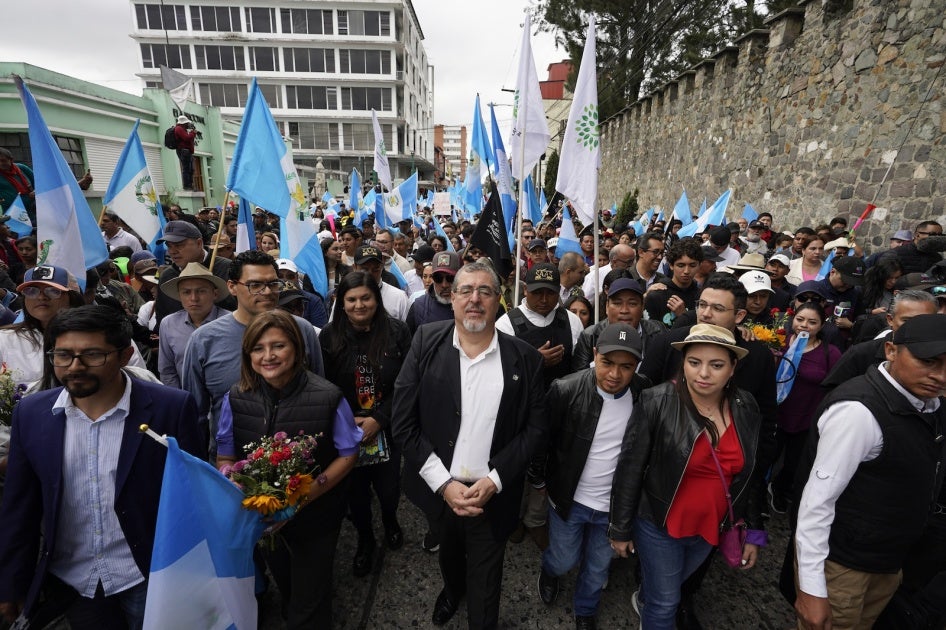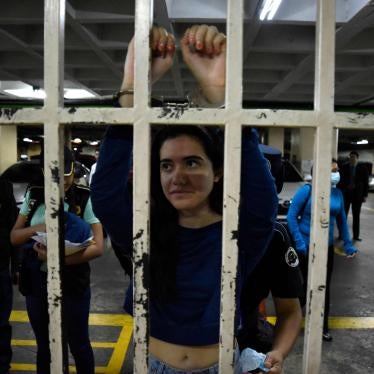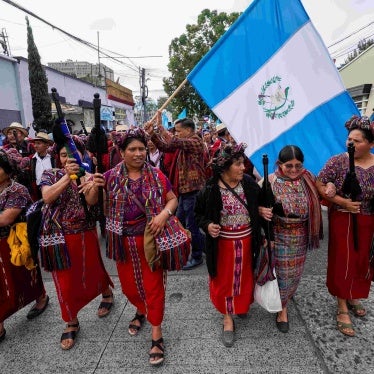After much delay, Bernardo Arévalo and Karin Herrera were officially sworn in as Guatemala’s new president and vice president for a four-year term in the early hours of January 15. Civic mobilization and strong international pressure were key in ensuring they could take office.
In August, Arévalo, an anti-corruption candidate and co-founder of Movimiento Semilla, won the presidential run-off with 58% of the votes. The Organization of American States (OAS) and European Union considered the elections fair and transparent, but Guatemala’s Attorney General’s Office has spent months trying to undo the outcome of the electoral process.
Arévalo and his supporters have been subject to attacks and intimidation, and his opponents have sought to use the courts to prosecute him and undermine the legitimacy of his party. The Attorney General’s Office suspended Movimiento Semilla’s legal status as a political party, and last month prosecutors asked the Supreme Electoral Tribunal (TSE), which oversees elections, to nullify the electoral results.
Continuous pressure from peaceful protesters, led by Indigenous groups, was critical to resisting attempts to reverse Arévalo’s election, as was support from international actors. Sustained engagement by the US government, the OAS, and the EU was instrumental in safeguarding the election result.
During the election, the EU’s observation mission played an important role in debunking false allegations of fraud and in speaking up against attacks on electoral integrity. And the EU’s support didn’t end when its observers left the country.
The EU has remained vigilant, repeatedly condemning attacks against the democratic process. In Guatemala and from Brussels, it warned that overturning the election results would damage Guatemala-EU relations and described these maneuvers by the Attorney General’s Office as an “attempted coup d’état.” The European Parliament adopted strong resolutions decrying attempts to set aside the electoral results, as well as the arbitrary prosecution of independent prosecutors, judges, and journalists. And in December, the EU Council agreed to adopt a framework on restrictive measures, including visa restrictions and asset freezes, on officials who sought to undermine the election. And in a powerful signal of the EU’s interest in the rule of law and the integrity of Guatemala’s democratic process, the EU’s top diplomat, Josep Borrell, traveled to Guatemala City to attend Arévalo’s inauguration.
European leaders should remain vigilant and continue to support efforts to restore the rule of law in Guatemala, which had already been severely eroded by corruption.
They should also make clear that their support extends beyond Guatemala and they will apply the same resolve when working with other governments in Latin America and elsewhere. Protecting democratic institutions and electoral processes should be a priority for the EU, wherever they come under threat.









